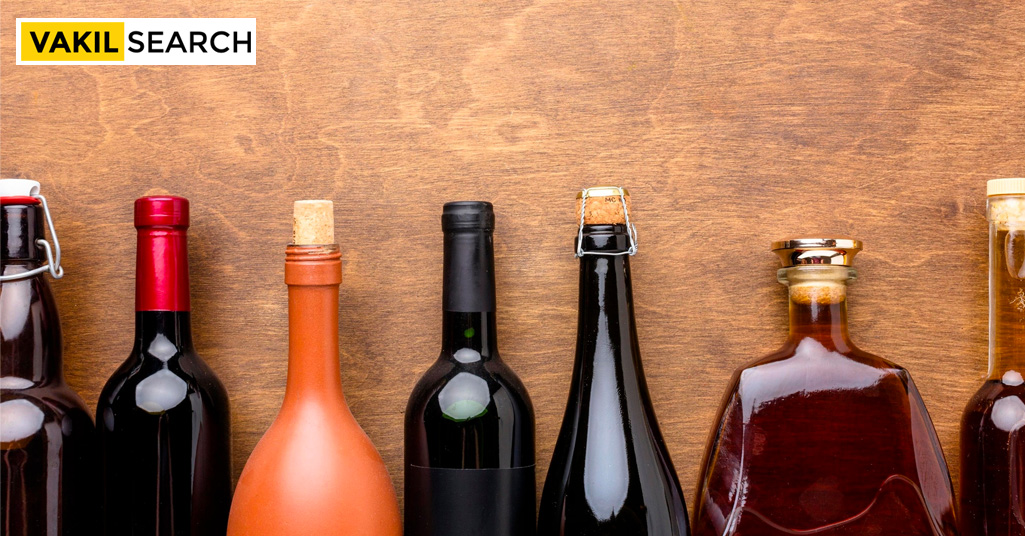Read this blog to know everything related to patenting of alcohol in India, the history of the emergence of alcoholic drinks, and so on.
Patenting of Alcohols in India
I don’t know about you, but stretching my back on a Saturday evening requires a can of beer. The refreshing chilled beer that creates a buzz in you is simply comforting. I always wondered about how India came to terms with alcoholic drinks, especially beer which is just one of the most common ones. Patenting Of All Alcohols Brands In India
I guessed that patenting these alcoholic drinks must be a huge pain. Why?! Well, with so many restrictions, and medical support opposition, it must have been a revolution or something. So I dug into it on Sunday after gulping down the Saturday evening beer, though. Let me enlighten you about my research.
The History of Alcoholic Drinks in India
The light beer market of India has subsequently changed. However, it surely took years for the government of India to recognise the revenue from the market and accept the alcohol content changes. The beer was accepted and rose to power in the 1970s with Punjab, Brigadier, and Rosy Pelican Brands opening in Punja and Haryana.
Since then, the market never looked back, and now we have some the high alcohol-content beers with up to 15%. That’s my personal favourite, so I had to mention the BRO CODE Spumante. The Indian Beers Brands have come a long way from a neglected market to being accepted by the citizens of India and revolutionising lifestyle and creating a sensation in different states of the country. We already know about Goa.
To Know more about the Cost of Patent Registration in India
The Patent Laws for Drinks
The brews of an alcoholic drink are always different. On the one hand, a drink can be made available in 25 days, or it might take up to 10 years to bring that savoury taste to build. Patents are a branch of intellectual property rights that saves the process and the product recipe from falling into the hands of the competitor. It is one of the most important parts of an invention that a brewery needs to have. However, it is important to note that there is no patent that directly secures the Alcoholic Drinks. But, there is a patent law for the protection of the recipes in India
The Patent Laws weren’t revised till 2005’s amendment. The 1970 Indian Patent Act did pave the way for the amendments but it wasn’t used to protect the food, beverages, pharma, or chemical compounds. However, now there are three tests by the India Patent Act that makes a food or beverage recipe secure.
- Novelty
The law requires that an invention be novel and not previously described in any document or used in the country or elsewhere in the world before the date of filing a patent application with complete specifications. Under Section 2(l) of the Patent Act, “new invention” means any invention or technology which has not been anticipated by publication in any document or used in the country or elsewhere in the world before the date of filing of a patent application with complete specifications.
- Non-Obviousness
A patentable invention must not be obvious, and it must provide a significant technical advance over previous knowledge. Section 2(ja) of the Patent Act defines an “inventive step” as a feature that involves some kind of technical advance compared with existing knowledge, an economic benefit, or both.
- Usefulness
The patent applicant must prove that the invention is useful and can be made or used in industry. In other words, the invention must have some use and should not be in contravention of the laws of the land.
What does the important Section 3(e) of the Patent Act, 1970 have to say in this matter?
This section is an extension of the Patent Law that says that one cannot call it intellectual property if it is an admixture resulting in aggregation of the properties of the components. In other words, you cannot just mix certain ingredients together and call it an invention.
Hence, the same old process of brewing a beer cannot be patented as it is known by all the masters of the craft. If one wants the recipe to be patented, there needs to be an inventive step that can rewrite the future of alcoholic drinks in a subtle way. It all comes down to the initial tests of the patent act of novelty and non-obviousness.
Thus, the question arises, what does the best Indian beer brand has to offer in its process that is inventive? Well, let’s see and analyse if the beer recipes can be patented in India?
The Beer Recipe Decoded
Beer is brewed from a combination of water, malted barley (and sometimes other grains), yeast, and hops. This process has not changed much over the years. While some brewers have experimented with different ingredients—such as millet, sorghum, and cassava—most stick to the traditional ingredients.
One non-traditional ingredient that many brewers use is wheat starch; it helps to create a lather on top of the beer glass. In addition to water, malted barley and wheat starch, most brewers also use corn or rice to lower production costs. Other less widely used ingredients are sugar and syrup; these sweeteners are often added to offset the bitterness of hops and achieve a particular taste.
The process of brewing includes malting (sprouting grains so they can be used for brewing), milling (crushing malt into grist), mashing (soaking crushed malt in hot water), lautering (separating grain from sweet wort), boiling (fermenting wort with yeast), fermenting (producing alcohol by adding yeast that feeds on sugar in the wort), conditioning (storing fermented beer for several weeks), filtering (removing debris from beer), packaging (canning or bottling beer for sale). And voila!
Brands Don’t Want to Patent Their recipes
Brands are wittier than you can imagine. They get into secret contracts with the traders to protect the confidentiality of the recipe rather than getting a patent that is only protected for 20 years. Yes, the patent protection is for 20 years and then the secret recipe will be available under the public domain which makes the secret, well… not so secret.
They actually avoid getting the beverage patented to keep the recipe going for a long-long time. On the other hand, the trademark their logo, label, and brand name for copyright protection for the advertisements. That allows them to make the packaging unique and create a better selling perspective in the market without hampering the recipe.
That was the unique selling point of the Kingfisher Beer Label. When the government of India banned the promotion of alcoholic drinks in India, Kingfisher revolutionised the promotion by taking the label and creating a brand image through non-alcoholic drinks like soda. It created a better ground for them, and Vijay Mallya indeed saw a huge leap in the sales of the biggest beer brand in India, Kingfisher Strong.
Conclusion
We can now draw a good line out of all the information I gathered in the past few days. Alcoholic-Drinks fall under the beverage section and can be patented by the brands. However, most of the big brands try to stay away from the patents because they want the recipe to go on for generations. Thus, they work within tight exclusive contracts to keep their secrets intact.
- But, if a brand wants, it can get a patent for the beverage, only if they have some inventive ingredient. They indeed need to meet the eligibility criteria to get through the process and then, they can have their product and process patented.










